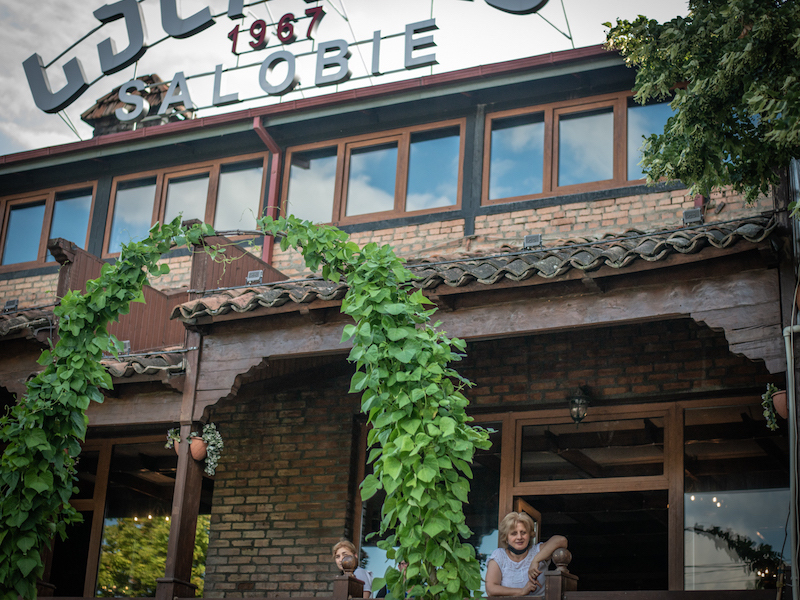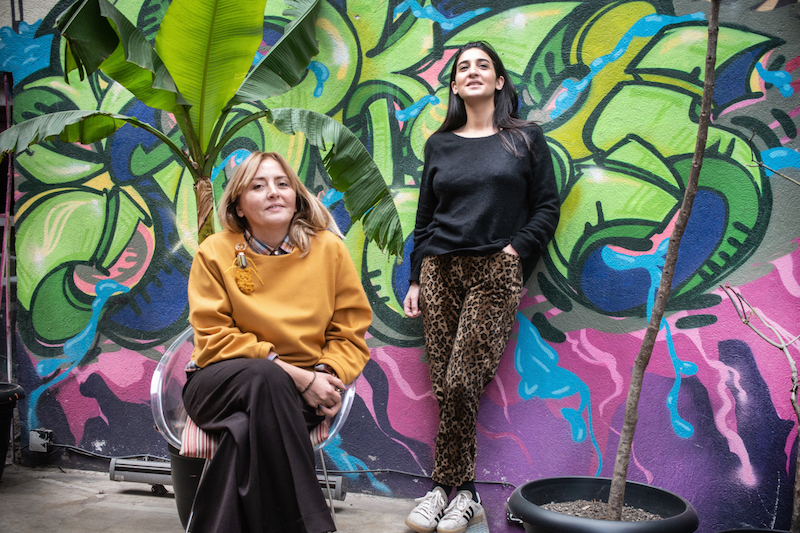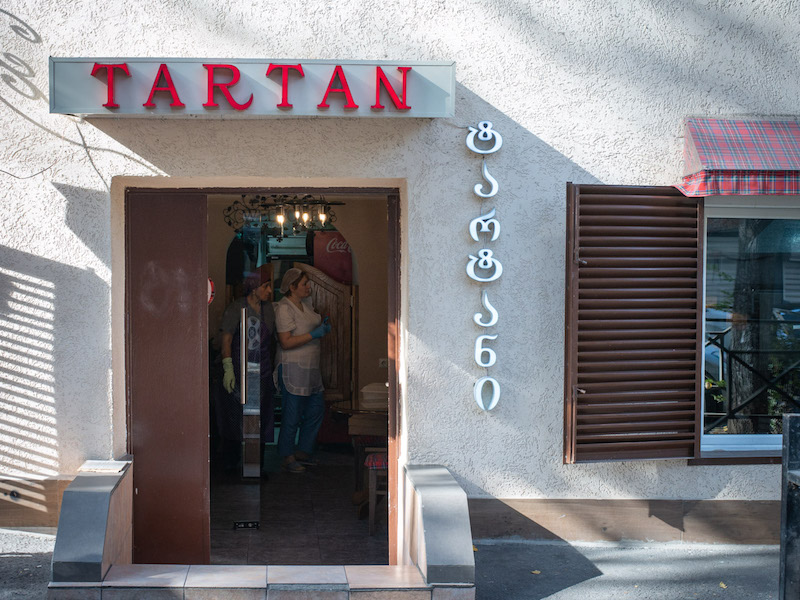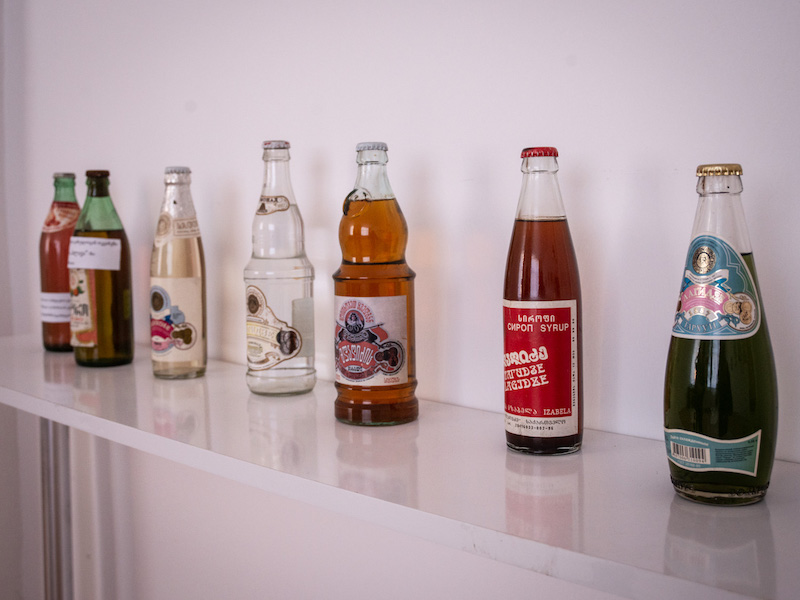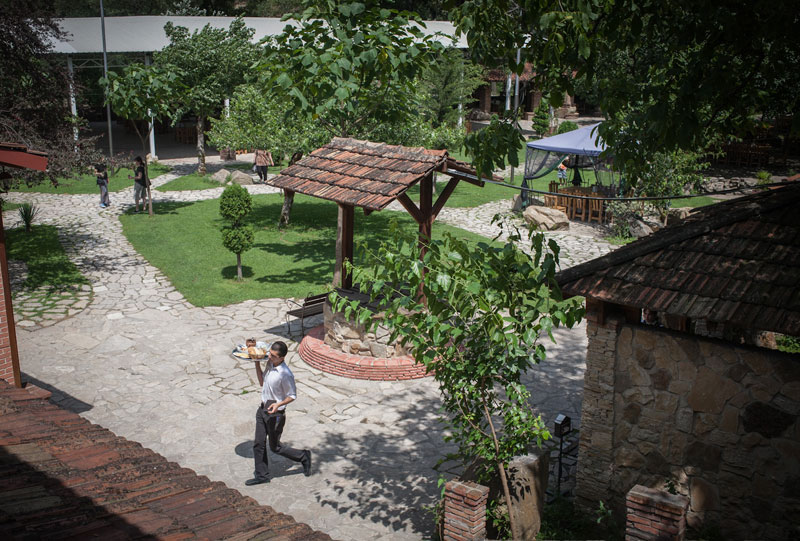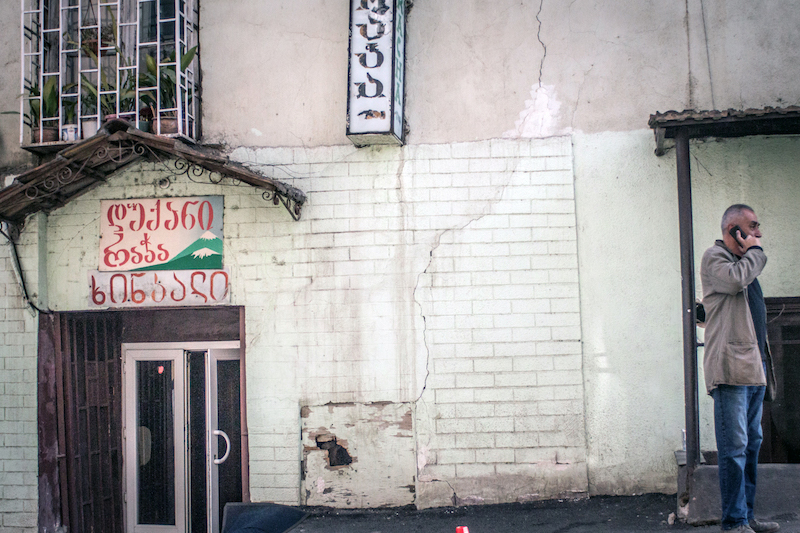We can't find the internet
Attempting to reconnect
Something went wrong!
Hang in there while we get back on track
Search results for "Paul Rimple"
Tbilisi
Salobie: Back to Beans
We met Tega at a friend’s dinner table shortly after moving to Tbilisi in 2002. Tall, debonair, with dark puppy eyes and an ever-present Colgate smile, Tega made it a point from that first meeting to take us under his wing and introduce us to the best Tbilisi had to offer. That was how we first ended up at Salobie, near the ancient capital of Mtskheta. “This place is famous for its beans,” he said. “And its name is Beans!” he chortled (lobio means “beans” in Georgian, and salobie is “house of beans”). The restaurant felt like something between a museum and a summer mountain resort. We were in the original dining room, built next to a giant 300-year-old wooden house from Racha.
Read moreTbilisi
Sulico Wine Bar: Soul Cellar
Happiness comes in all forms, but according to Aristotle’s scale there are four distinct levels to this particular emotion – say, for example, waking up to a glorious sunny day (laetus), getting a special discount from your local green grocer (felix) or watching your dog do its business in a sinister neighbor’s yard (beatitudo). Looking out the window, the snow-capped Caucasus along the horizon on this bright day, our eyes scan the city and settle over our own neighborhood of Vera, below. We sigh a sensual “yes” and nod smugly with our arms crossed because now there is a place in the hood where we can experience each of Aristotle’s levels of happiness in one splendid sitting.
Read moreTbilisi
Tartan: Take-Out Wizards
You are motionless, stuck in a traffic jam after a long day at work while your stomach growls. You know the rest of the family will be hungry when you get home and that the fridge is empty and sad. Shopping and cooking is out of the question, so you turn onto a Vera side street, zig-zag through one-way lanes to Tatishvili Street, double park, and run into a tiny gastronomic oasis that has been saving lives like yours for nearly a decade. Its name is Tartan. Located in a step-down ground-floor apartment, takeout cafeterias don’t get homier than this. The front room is taken up with a long counter of refrigerated display cases half filled with enough ready-made dishes to lay down a feast when you get home.
Read moreTbilisi
Liquid Assets: Lagidze Water, Georgian Nectar
It was our first Tbilisi summer stroll down the city’s main drag, Rustaveli Avenue; two sweaty, newly arrived pie-eyed tourists tripping on the 2001 reality. There were billboards advertising the recent kidnapping of a Lebanese businessman, policemen in crumpled gray uniforms extorting money from random motorists with a wag of their batons, and at the top of the street, a former luxury hotel looking like a vertical shanty was full of displaced Georgians from Abkhazia. Parched and cotton-mouthed, we entered a café of sorts for cool respite. The room had high ceilings, was stark and all marble-tiled, including the long, wide bar. A splendid social-realism mosaic of women, grapes and wine was laid into the back wall. The counter was decorated with a few tin ashtrays and a spinning rack holding several tall cone-shaped beakers filled with technicolored syrups.
Read moreTbilisi
Armazis Kheoba: Down by the River
Editor’s note: It’s Beat the Heat Week at Culinary Backstreets, and in this week’s stories, we’re sharing some of our favorite spots to visit when the summer temperatures soar. Summer in Tbilisi means sweet and sour cherries, plums, apricots, peaches, fresh figs, watermelons and, most importantly, tomatoes that taste the way God intended them to. It’s a season bursting with flavors – but there’s a hitch. Tbilisi summers are oppressively hot and humid, the thick, gritty city air leaves a mucky film on the roof of your mouth, stifling your appetite and keeping you out of your favorite local eateries. Everyone evacuates the capital in the summer, and if we can’t manage to get out of town for weeks on end, we can at least drive 15 minutes to spend an afternoon at Armazis Kheoba for some lungfuls of fresh air and beef liver mtsvadi.
Read moreTbilisi
Retro: Maestro of Khachapuri
There was a dowdy little joint in Batumi, Georgia’s Black Sea port town, where two middle-aged women churned out the most exquisite Adjarian-style khachapuri pies in an old pizza oven. It was a must-stop for every trip to the coast, as there were few places in Tbilisi that could scorch such an authentic acharuli. As the years passed, the seedy potholed streets that hosted a pool hall, brothels and our favorite khachapuri joint transformed into a gentrified neighborhood of gift shops and boutiques catering to the ever-growing number of tourists flocking to Batumi. Meanwhile, the boat-shaped acharuli has become one of the most emblematic dishes of Georgian cuisine and is not only found all over Tbilisi, but is also being served in New York and Washington, DC.
Read moreTbilisi
Dukani Racha: Tbilisi’s Oldest Greasy Spoon
We returned to Tbilisi in 2002 with the intention of staying one year. On that first day back, our friends took us to a chummy brick-walled cellar in Sololaki. There was enough sunlight coming down through the door to illume low pine tables and seating for fifty people max. In a refrigerated counter, menu items were displayed: beef tongue, tomato and cucumber salad, assorted cheeses, badrijani (sliced fried eggplant stuffed with a garlicky walnut paste), all the standard stuff. It was a Georgian greasy spoon, for sure, with a kitchen that would make a health inspector shudder, but the khinkali were really good, and the house wine was as decent as it comes. The name of the place was Dukani Racha. Little did we know people had been coming here for decades.
Read more